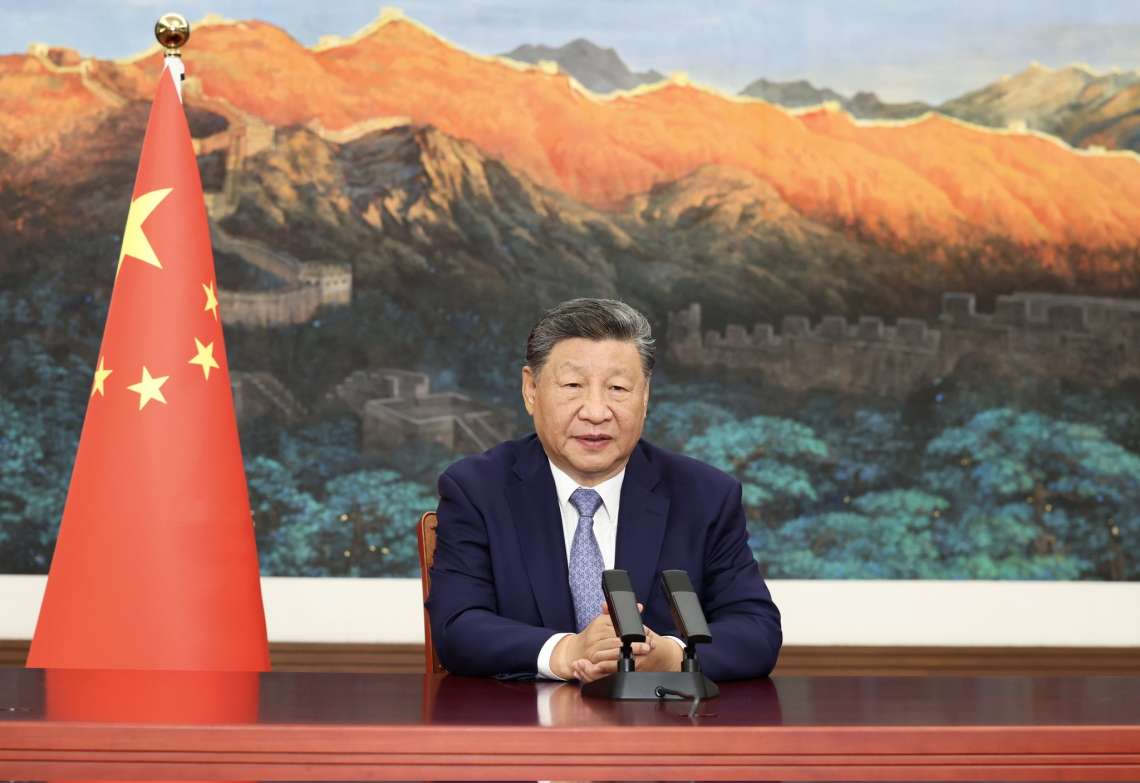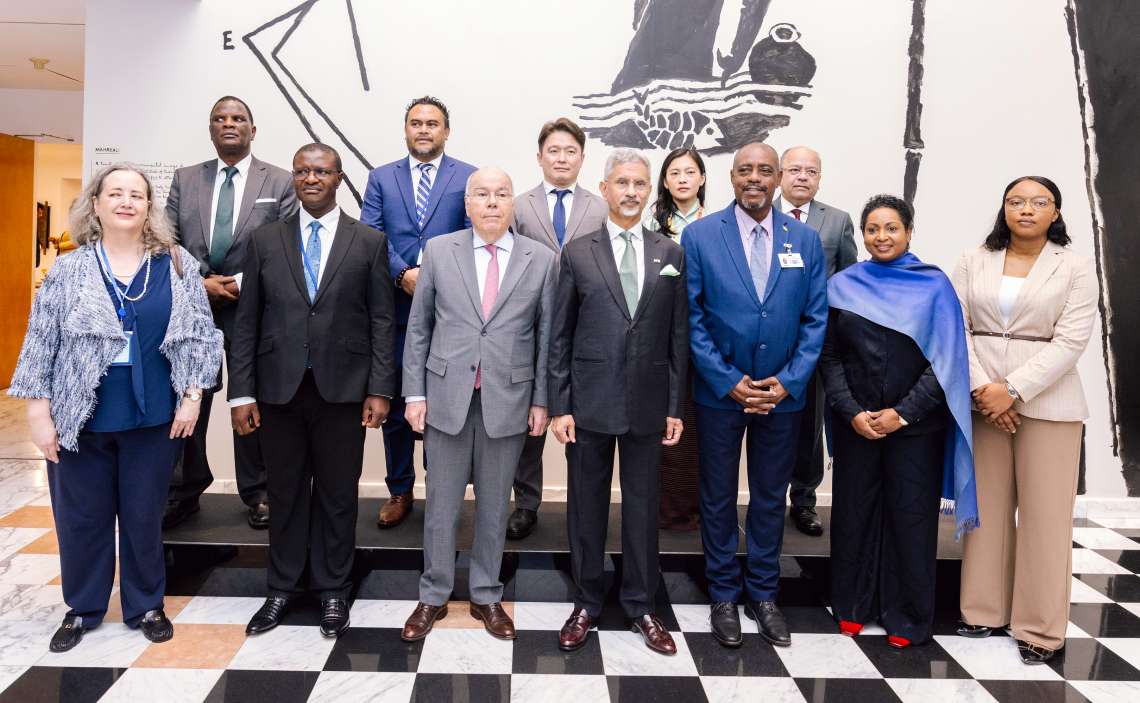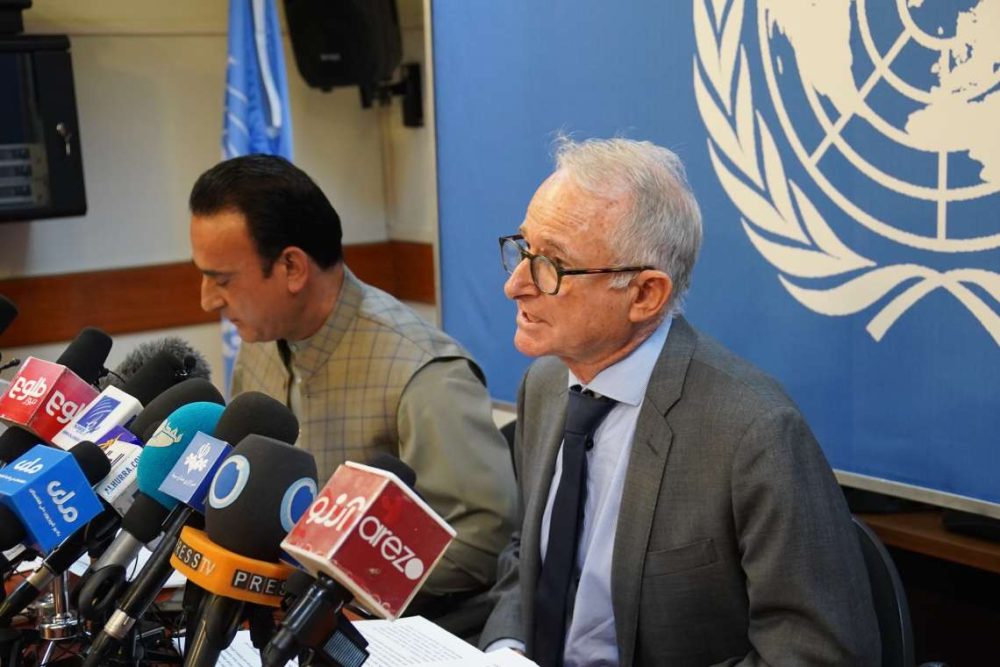China pledges first-ever absolute emissions cut of 7–10% by 2035, amid US scepticism, sparking debate over global climate ambitions as COP30 approaches in Brazil….reports Asian Lite News
China, the world’s largest emitter of greenhouse gases, has for the first time committed to an absolute reduction in emissions, signalling a pivotal moment in global climate diplomacy.
In a video address to the United Nations in New York, President Xi Jinping announced that China would reduce economy-wide greenhouse gas emissions by 7–10% by 2035, while “striving to do better.” The pledge marks the first occasion Beijing has set a specific, measurable target for cutting overall emissions, rather than limiting targets to peaking or intensity-based reductions.
Xi’s statement comes against a backdrop of faltering global momentum on climate action. Just a day earlier, US President Donald Trump dismissed climate change as a “con job,” underscoring the sharp divide between the world’s two largest economies on the issue.
Environmental groups welcomed China’s willingness to move beyond previous commitments but said the pledge still fell short of what was required to meet global goals. “Even for those with tempered expectations, what’s presented today still falls short,” said Yao Zhe, global policy adviser at Greenpeace East Asia.
The timing of the announcement adds to its significance. While the year’s main climate summit, COP30, will take place in Brazil in November, the UN meeting in New York has gained urgency because nations are under pressure to submit new climate plans for 2035. These pledges, mandated every five years under the Paris Agreement, are crucial to determining whether the world can limit the rise in global temperatures to 1.5°C above pre-industrial levels.
The original deadline for updated commitments was February, but many governments have delayed, scrambling to finalise plans before the end of September. UN Secretary-General António Guterres warned ahead of the meeting that stronger commitments were essential. “We absolutely need countries to come with climate action plans that are fully aligned with 1.5 degrees, that cover the whole of their economies and the whole of their greenhouse gas emissions,” he said.
He stressed that drastic reductions must take place in the next few years if the world hopes to keep the 1.5°C goal alive. “It is essential that we have a drastic reduction of emissions in the next few years if you want to keep the 1.5 degrees Celsius limit alive,” Guterres added.
China’s move will therefore be closely watched. As the world’s biggest source of emissions, Beijing’s decisions carry enormous weight in shaping the trajectory of global climate efforts.
President Xi reminded the UN of China’s longer-term climate commitments. In 2021, he pledged that China would aim to peak emissions before 2030 and achieve “carbon neutrality” by 2060. Wednesday’s statement advances that roadmap by establishing absolute reductions, a departure from earlier intensity-based approaches that linked emissions cuts to economic output.
“These targets represent China’s best efforts based on the requirements of the Paris agreement,” Xi said, adding that the pledge would cover all greenhouse gases, not just carbon dioxide. The cuts would be measured from “peak levels” of emissions, though he did not specify when the peak would occur.
In addition to the headline emissions pledge, Xi outlined steps China would take to transform its energy and industrial sectors. These include expanding wind and solar power capacity to more than six times 2020 levels, increasing forest stocks to more than 24 billion cubic metres, and ensuring that “new energy vehicles” become the mainstream choice in new car sales.
While critics argue the plan still lacks sufficient ambition to align with the 1.5°C pathway, China’s commitment to absolute reductions marks a significant policy shift. For global climate negotiations, it could serve as both a benchmark and a signal to other major emitters that incremental pledges will no longer suffice.
With the clock ticking ahead of COP30, the world’s attention is now fixed on whether other major economies will match China’s step and bring stronger climate pledges to the table.














